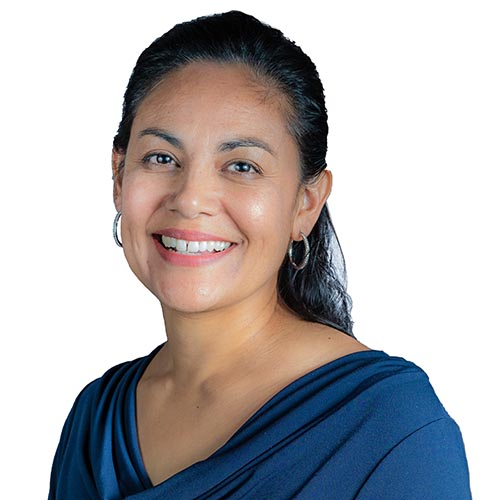When life gets challenging, and it feels like things are spiraling out of control, it can seem like there’s nothing we can do. We feel overwhelmed and at a loss. We can slip in to states of denial, struggling to come to terms with our reality. And that struggle with reality only makes moving forward more difficult.
There is a practice though that can help us feel more in control, and help us face reality: radical acceptance.
What is Radical Acceptance?
Radical Acceptance is the complete and total acknowledgment of reality, including the recognition of what you can and cannot control.
When it feels like we have no control, we often forget the things we do have the power to change: our thoughts, feelings, and behaviors.
Radical acceptance asks that we focus on these things we can control, while letting go of the things we can’t. Some examples of things we can’t control are other people’s actions or attitudes, the weather, and in the case of 2020, pandemics.
More formally, radical acceptance is a skill commonly taught in dialectical behavior therapy (DBT), a type of cognitive behavioral therapy. The goal of DBT is to teach people how to live in the moment and develop healthy coping skills for stress. One of those healthy coping skills is this idea of radical acceptance.
What Radical Acceptance is NOT
It does not mean you agree with what’s happening. It does not mean you are giving up. And it definitely doesn’t mean you need to sacrifice your values.
Imagine you’re throwing a birthday party for a close friend in a park, but as you’re setting up, it beings to rain unexpectedly. Radical acceptance doesn’t mean that you say, “oh I agree that this party should get rained out.” It also doesn’t mean that you stop throwing the party. Instead, it’s just accepting that it’s raining, and moving on from there. Maybe you move under a tree, or maybe you relocate to a restaurant. But you accept that it is raining, you cannot control the rain, and you can only control how you react to it.
How Radical Acceptance Helps
This technique gives you the permission to stop struggling, focus on what works, and stay grounded in the present.
Going back to the rained-out party example, radical acceptance allows you to move past the disappointment of the rain, and figure out a solution, without beating yourself up for something out of our control.
Of course, radical acceptance can be a little more challenging when we feel like we should be able to change things. When it comes to someone’s mood, or a meeting or assignment going poorly, we can often take unwarranted blame, feeling like if only we’d tried something else, we could improve the situation. But radical acceptance means, well, accepting how things really are, and deciding what actions we can take in the future to feel better.
How can Radical Acceptance Help During a Pandemic?
It starts with accepting the good with the bad. There are many things we have no choice over right now: closer quarters at home, physical distancing from our friends, stay-at-home orders, the loss of many things we were looking forward to.
We are allowed to grieve these things, but they also provide us with an opportunity to reflect on the nature of our lives. What are you missing the most? Is there a way to incorporate that thing more richly into your life in the future? And if you’re finding being trapped in your apartment sad, is there a way you could spruce the place up to feel more warm?
This reflection point allows us to make the shifts we want to live more in sync with our values.
It’s also an opportunity to give up the struggle to make things perfect, and in that, feel empathy. So many people right now are struggling in many different ways. Some are facing great loss, some are struggling to pay bills, others are struggling to keep up with the many demands of family, work, and self-care. And others still are just bored and lonely.
All we can do right now is give things our best shot. If it helps, you can make a checklist for each day. It can include things like “brush my teeth, take a shower, do some work, read for 10 minutes, eat some fruit or vegetables.” Make your list simple before you make it complicated. You are doing what you can. That’s all you need to do. You can let the rest go.
Lastly, one thing radical acceptance helps us to do is be there for others. When we can acknowledge and let go our own feelings of disappointment, we can be there for our friends. Send a supportive email or text. Use this time to reach out to friends you wish you were still close to. Or be the one who encourages your friend(s) to keep connecting during this time. Video chats can lose their novelty, but we never lose our desire to feel connected.
Practicing radical acceptance can help with all life’s challenges. The next time you feel yourself becoming frustrated, acknowledge what about the situation you cannot change, and then turn inward for what you can, letting go of the rest.

By Giselle Alexander, LCSW
Teletherapist, Sanvello
I’m a licensed clinical social worker with over 15 years of providing culturally appropriate psychotherapy and social services to individuals and families. I received my clinical license to provide psychotherapy in 2010. My training and experience come from a varied background of working in community mental health, social services, and private practice with individuals and families grappling with severe and persistent mental illness, anxiety, depression, grave disability, and end of life transitions. When I am not connecting with my clients, I enjoy the outdoors, dancing, cooking, and spending time with my family and my rescue dog, Maggie.

